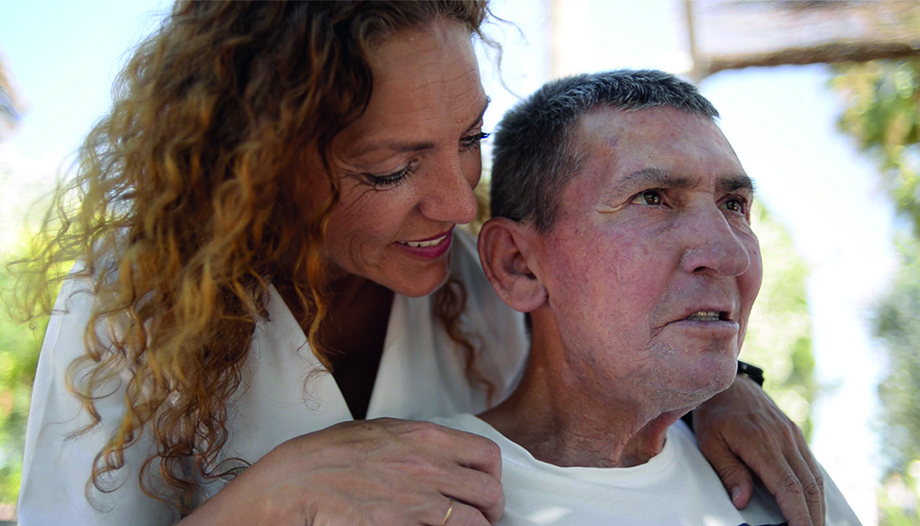Do you remember when in the 80s and 90s the Catholic Church was considered practically responsible for the spread of AIDS? Time has set the record straight and shown who has truly stood by the victims and who has used HIV only as an ideological weapon.
If you are over 30 years old, I'm sure you too have felt a shudder when you heard about AIDS. During the last decades of the last century, the disease caused a terrible impact around the world, as people who were infected had only one prognosis: death; accompanied by a cruel social stigma.
In those years of fear and uncertainty surrounding AIDS, the Catholic Church went out of its way to take care of those whom no one wanted even remotely, offering not only medical attention despite the great ignorance that existed about the disease, but also the affection and accompaniment necessary for these people to die with dignity.
In Malaga, for example, the Colichet Shelter was a joint project of Caritas Diocesana and the Daughters of Charity in which those "stinking" found a home where they felt loved. In the same shift three sick people died," explained its director, Paqui Cabello, in a recent interview. They were leaving and there was nothing you could do. It was a feeling of emptiness as if they were taking away part of your life".
However, in those years, no one spoke of Paqui's sleepless nights, nor of the worries of Sister Juana, doctor and daughter of Charity, when it came to treating patients with a practically unknown disease: "I myself was scared to death," she said, "because we didn't know what we were facing. There was much talk, however, of the "inadmissible" attitude of the Church in opposing almost the only solution to the problem offered by the big power groups: the promotion of the use of condoms.
With the benefit of hindsight and the experience of the Covid pandemic, I have become convinced that that campaign against the Church was nothing more than an ideological warfare plan, perhaps supported by the pharmaceutical industry, to shore up the sexual paradigm that emerged from May '68, which was faltering in the face of the emergence of HIV. Of course, barrier devices (condoms or masks, depending on the route of transmission) are necessary in certain cases, but hasn't the coronavirus shown that they alone are not enough and that other measures related to changing habits are necessary? With the coronavirus, we were told that we could not even visit our relatives, we were locked up at home for months, but, with AIDS, we could not even suggest less sexual promiscuity! The dogma of free sex defocused the fight against AIDS by pointing the finger of blame for that terrible pandemic at the very person who was doing the most for the sick.
Today, thanks be to God, AIDS has gone from being a fatal disease to a chronic illness in the first world. And the Church continues to be at the forefront of the fight against HIV and its consequences: researching new treatments in its hospitals and universities, working on prevention, caring for HIV-positive people, providing palliative care for those who have been evicted by poverty, taking care of the millions of children orphaned by the disease and demanding that the poor also have access to modern drugs. It is estimated that one in four AIDS patients in the world is cared for in a Catholic Church institution and the WHO states that 70% of the health services provided in Africa are carried out by religious organizations.
On this World AIDS Day, we will hear great speeches from those who find in HIV just one more reason to do social engineering, promote ideological colonization or simply make posturing. I, with the endorsement of my experience, will stick with the simple words of those who do not have powerful media terminals or lobbies that play with marked cards. I am left with Paqui's emptiness at the loss of a new patient and Sister Juana's disgust when attending to a new patient. They do know about AIDS and the Church.
Journalist. Graduate in Communication Sciences and Bachelor in Religious Sciences. He works in the Diocesan Delegation of Media in Malaga. His numerous "threads" on Twitter about faith and daily life have a great popularity.








